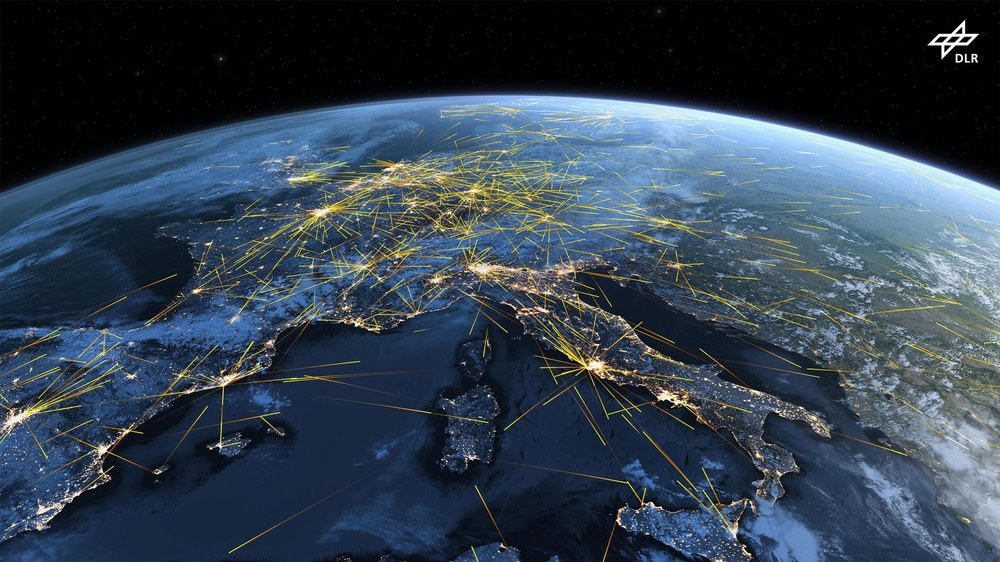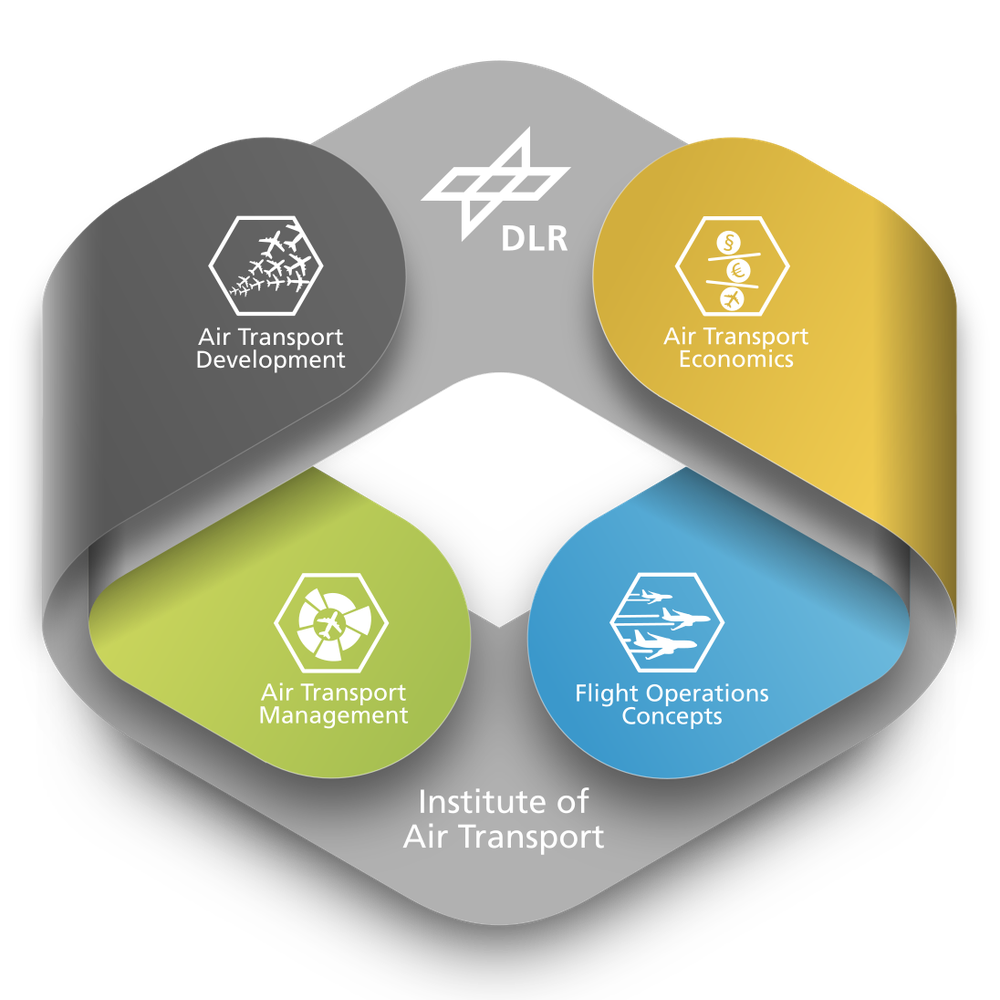Institute of Air Transport

DFD-WIS, DLR
In order to ensure that aviation can continue to make a decisive contribution to the individual mobility of people, solutions are needed that contribute to the sustainable development of air transport. To this end, the Institute of Air Transport researches the complex interrelationships of air transport and its subsystems. This includes the development of scenarios for the air transport markets, economic and business analyses of the air transport system, as well as the modelling and simulation of flight and fleet operations from the perspective of the air transport industry.
More than 60 employees forecast, design and evaluate air transport as part of the transport system and thus contribute to increasing sustainability and performance of the sector.
The Institute brings together the ecological, economic, technological and social aspects of air transport and combines – within DLR – key competencies for assessing air transport markets and evaluating the overall air transport value chain. In this way, the Institute positions itself as a competent contact partner for business, society and policymakers.
The research tasks of the institute include:
- the analysis and forecasting of development paths and drivers of the air transport system – from a local to global level,
- the representation, modelling and multi-criteria evaluation of the air transport system and related transport policy, operational and technological measures,
- economic and business analyses along the entire air transport value chain,
- and thus the generation of knowledge and recommendations to increase the sustainability and performance of the air transport system.
Structure and locations
Structured in the four departments
- Air Transport Development
- Air Transport Economics
- Air Transport Management
- Flight Operations Concepts
the institute covers the entire air traffic system and thus complements DLR's extensive technological portfolio with operational, economic and regulatory know-how.

The departments are located in Hamburg and Cologne with direct proximity to airports, airlines, regulatory authorities, aircraft manufacturers and service providers as well as aviation networks. The institute also has good connections to Berlin and Brussels, and thus to political representatives, other players in the aviation industry and industry associations. Hamburg is also the world's third largest location for the civil aviation industry, a world leader in research into climate change, an international logistics location, a model region for urban air mobility and for the industrial production and use of green hydrogen, and plays a pioneering role in intelligent mobility.
Exemplary research topics of the Institute
- How will the air transport sector, its main drivers and its economic, ecological and social effects develop over the next 50 years?
- What are the likely effects of capacity bottlenecks at the airport level, or of restrictive bilateral air service agreements, on the future fleet and traffic structures?
- Which (new) flight operation concepts and technologies will be feasible and sustainable from an ecological and economic point of view?
- What are the strategies for aircraft operators to implement efficient flight operations under externally-set ecological and regulatory framework conditions?
- Which operational measures can reduce air traffic disruptions and resulting consequences for passengers and other stakeholders?
- Which technological and political-regulatory measures can effectively and efficiently reduce the climate impact of the air transport system?
- What would be the impact of a tightened EU ETS on costs, prices and competition?
- How could so-called non-CO2 effects be integrated into the existing EU Emissions Trading System?
- What is the development potential of the (German) airport landscape?
